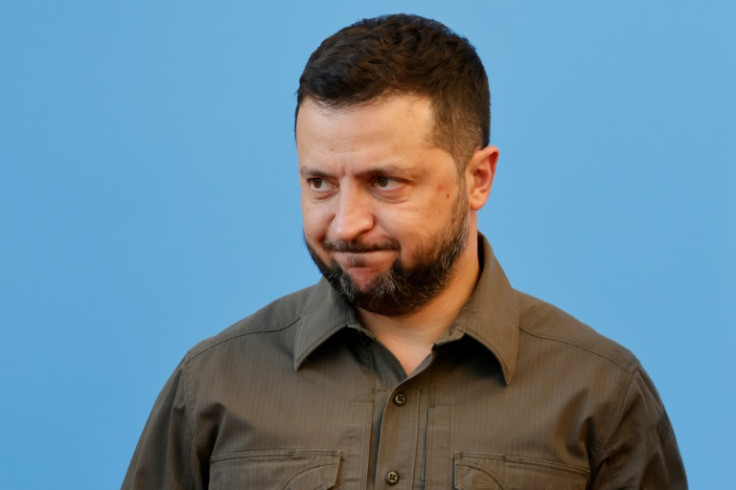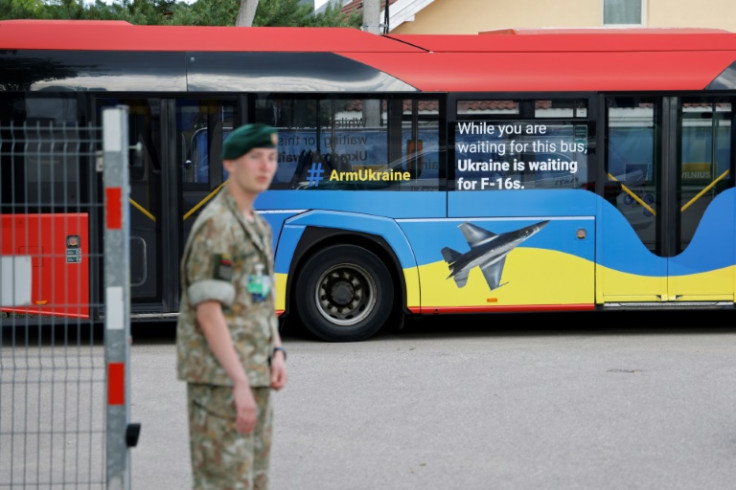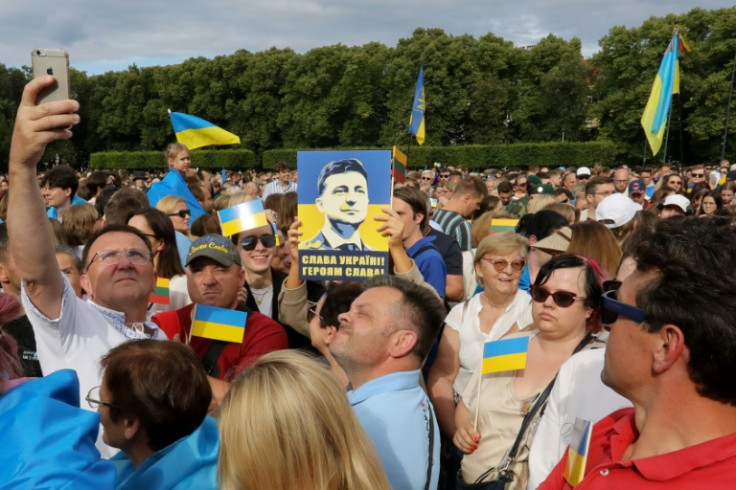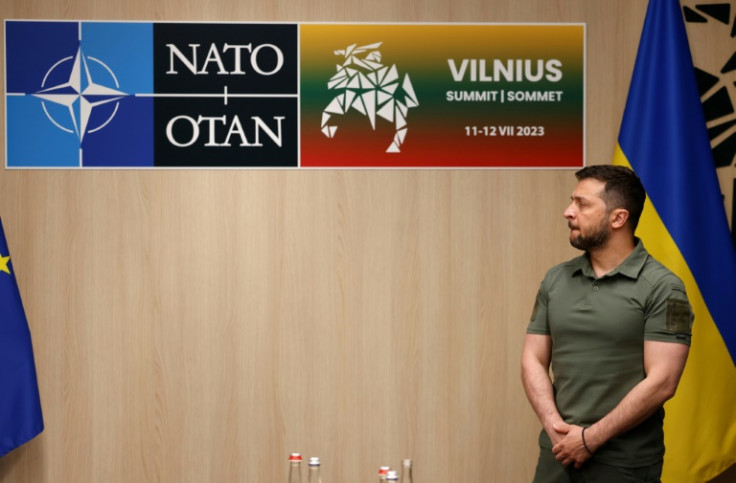Zelensky hails 'security victory' after G7 vow support
On Tuesday, the NATO leaders agreed that Ukraine could join the alliance once certain conditions are met.

Ukrainian President Volodymyr Zelensky on Wednesday welcomed a commitment by G7 nations to support Ukraine for as long it takes to defeat Ukraine, insisting it was a step on the road to Kyiv eventually joining NATO.
"We will not waver," US President Joe Biden said in a speech in Vilnius aimed at showing resolve to Russia's President Vladimir Putin after meeting Zelensky at a NATO summit.
"Putin still doubts our staying power. He's still making a bad bet that the conviction and the unity among the United States and our allies and partners will break down."
Zelensky insisted that the promises from the Western leaders amounted to a "significant security victory" that he could take home to Kyiv.
But he did not disguise the fact that he would have preferred the 31-member Atlantic alliance to have agreed a firm timetable for Ukraine to join its ranks once the 16-month old Russian invasion has been defeated and peace restored.
"The best guarantee for Ukraine is to be in NATO," Zelensky said, expressing confidence that once the war is over Ukraine would be welcomed, but warning that the G7 commitments should be seen "not instead of NATO, but as security guarantees on our way to integration."

On Tuesday, the NATO leaders agreed that Ukraine could join the alliance once certain conditions are met, and US and German officials in Vilnius made it clear that these would include Kyiv carrying out reforms to protect democracy and the rule of law.
"No country is exempt from them," Germany's Chancellor Olaf Scholz told reporters referring to the reforms.
This could frustrate Zelensky, who insisted Ukraine's understanding was that the tests that Kyiv must still pass were simply "security conditions", that peace must be restored and the Russian aggression ended.

"We understand that Ukraine cannot become a member of NATO while the war is ongoing. But then it will be for our common strength when Ukraine joins the alliance," he tweeted.
The G7 plan provides a framework under which individual nations will agree bilateral deals with Kyiv detailing the weapons they will give and response they will make if Russia ups the ante, a message to Putin that he cannot keep the war grinding on hoping that international support falters.
Biden, who opposed granting Kyiv an immediate invitation timetable, insisted the G7 commitments showed that world powers would be by Ukraine's side while it fights off Russia and establishes the conditions of membership.

"We're going to help them build a strong capable defence across land, air and sea," Biden said, at a ceremony with Zelensky and the leaders of the other G7 powers -- Britain, Canada, France, Germany, Italy and Japan -- to unveil the framework document on their security promises.
Biden saluted Zelensky's courage as an example to the whole world, "not only you but your people -- your sons, your daughters, your husbands, your wives, your friends: you're incredible."
In their statement, the G7 powers embraced the "strategic objective of a free, independent, democratic, and sovereign Ukraine, within its internationally recognised borders, capable of defending itself and deterring future aggression.
"We will stand with Ukraine as it defends itself against Russian aggression, for as long as it takes," they said.
To prevent Russia starting another war when peace comes, the G7 vowed swift military assistance for Kyiv and to punish Moscow if there were to be another invasion.
Zelensky thanked them, but stressed that the document should be an "instrument of integration" leading one day to full NATO membership.

Several more countries have already signed up to the principles of the G7 document, including Spain, the Netherlands, Portugal, Iceland, Norway, Denmark, Poland and the Czech Republic, according to Spain's prime minister, Pedro Sanchez.
France's President Emmanuel Macron said this international solidarity showed that Ukraine enjoys long-term backing while Russia, recently beset by a brief revolt by the Wagner mercenary group, was "militarily and politically fragile" and showing "its first signs of division".
Despite NATO's failure to offer Ukraine a clear timetable for membership, the Kremlin was sufficiently angered by the G7 guarantees to issue a bleak warning that the step "will make Europe much more dangerous for years and years".
NATO's Secretary General Jens Stoltenberg stressed the importance of the progress he said Ukraine had made at the two-day summit, held under tight security on NATO's eastern flank, 16 months after Russia's all-out invasion of Ukraine.
He noted that Zelensky had joined NATO leaders at an inaugural meeting of the Ukraine-NATO Council, and said several allies were boosting bilateral assistance, such as France with a pledge of long-range missiles and the Netherlands leading a coalition to train fighter pilots.
"Today, we meet as equals, I look forward to the day we meet as allies," Stoltenberg said.
NATO allies from eastern and northern Europe, themselves wary of Russian attack, have been most supportive of Kyiv's membership bid, but alliance leader the United States and European economic powerhouse Germany have been more cautious.
Zelensky also had head-to-head meetings with several more leaders including British Prime Minister Rishi Sunak, who expressed sympathy for his disappointment.
"Both agreed the arrangements will not be a substitute for NATO membership and looked forward to building on the new security framework as soon as possible," Sunak's Downing Street office said.
© Copyright AFP 2025. All rights reserved.





















